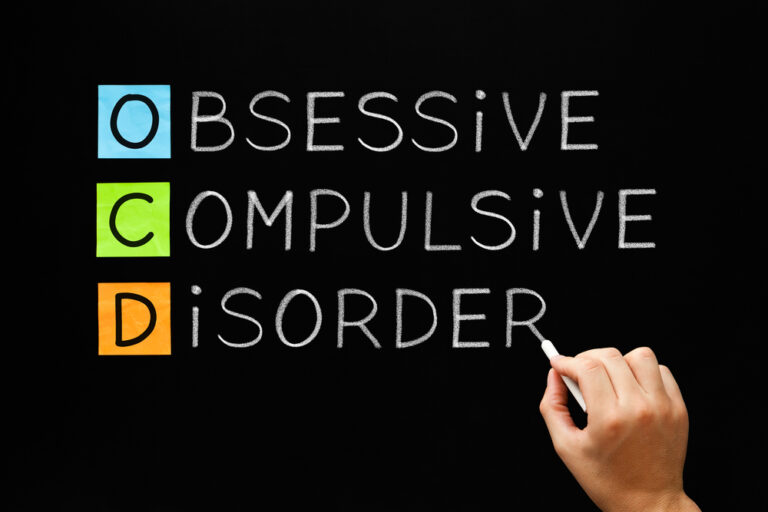Working Towards Emotional Wellness
Since 2004, wellness advocates in the United States have recognized October as Emotional Wellness Month. With the ever-increasing fast-paced lifestyle of hectic schedules, beeping devices, and, how could we forget, the uncertainness of 2020, there is a good reason for focus on Emotional Wellness.
Stress is the most significant catalyst towards emotional unrest, so it’s essential to take stock of the amount of stress you encounter. Thus take the time to learn strategies and activities to discover your peaceful mind. During Emotional Wellness Month, we are reminded that it is okay for your mind to take some time off.
What is Emotional Wellness?
According to the National Institute of Health, the definition of emotional wellness is:
“The ability to successfully handle life’s stresses and adapt to change and difficult times.”
In that quote, handle is the operative word. One thing is for sure; there are a lot of challenges and changes to handle when managing life, relationships, work, financial stress, COVID-19, and loneliness.
What Does Emotional Wellness mean?
Being emotionally well doesn’t necessarily mean that you’re happy all the time. But, with some good self-care and positive awareness, you’re in a better position to shift to a more positive frame of mind.
Emotional wellness provides feelings of contentment by being able to relax and live in the moment. The good news is, there are many action items you can adhere to that will help you balance the greatest act of all, your life.
Strategies and Activities
While there ARE life events that we can’t control, such as job loss or losing a loved one, there are strategies and activities that we DO have control over to improve our emotional well-being.
Exercise
Did you know exercise can have a positive effect on your emotions? According to Healthy Minds, physically active people have up to a 30% reduced risk of becoming depressed, and staying active helps those who are depressed recover.
Why exercise?
Exercise releases chemicals like endorphins and serotonin that improve mood. Also, by taking a walk around your neighborhood or park, exercise gets you out of the house and in touch with nature and passersby, helping to reduce feelings of loneliness and isolation. A great way to stay in touch is to grab a friend to go for a walk and talk. Enjoy a stroll, and notice the sights around you.
Get a Good Night Sleep
We often sacrifice sleep to accomplish everything we want to do in our day. Sleep affects both mental and physical health, and it’s vital to our overall well-being. When you’re tired, you can’t function at your best, and a lot of recovery for the mind and body occurs during a night of sound sleep.
Sleep helps you think more clearly, have quicker reflexes, and focus better. It’s important to take the steps needed to regularly get a good night’s sleep. Some ideas may be a warm bath or shower before bed and settling in with a good book before sleeping. Paper books are better than eBooks before bed since too much light from devices before bedtime can keep you awake at night.
Also, in this digital world, the amount of time we spend online during the day impacts our emotional health and sleep. We are inundated by data, news, and alerts. Consider reducing the amount of time spent in front of the screen. As a suggestion, it’s a good idea to even take one day a week off from phones, tablets, and computers. Rate your emotional wellness before and after you do this. Take a self-check to see if you are freeing your mind of too much stimulation.
Some more tips to getting better quality sleep are to go to bed and get up each day at the same time and sleep in a cool, dark place.
Stop and Breathe
One of the best strategies of all is to breathe deeply. You can do this anytime during the day when you are feeling overwhelmed or anxious. You only need about ten minutes to feel the benefits.
To help combat stress, slow down, stop and rest your thoughts in the present moment. Find a comfortable place to relax and with your eyes closed, focus on positive emotions, such as a good friend or a fond memory, while breathing deeply. Inhale deeply through your nose while you count to four. Hold your breath for one second and then exhale through your mouth to a count of five.
To develop a more positive mindset during this quiet time, think upon your good deeds of the day, forgive yourself, and practice gratitude. Positive emotions may be created by simply being thankful every day.
A Healthy Diet
An article in Sutter Health explains “according to the American Dietetic Association, people tend to either eat too much or too little when depressed or under stress. Eat too much and you find yourself dealing with sluggishness and weight gain. Eat too little and the resulting exhaustion makes this a hard habit to break. In either case, poor diet during periods of stress and depression only makes matters worse. This cycle is a vicious one, but it can be overcome.
To boost your mental health, focus on eating plenty of fruits and vegetables along with foods rich in omega-3 fatty acids, such as salmon. Dark green leafy vegetables, in particular, are brain protective. Nuts, seeds, and legumes, such as beans and lentils, are also excellent brain foods.”
Set yourself up for success. Have healthy snacks on hand and make healthy meals ahead of time. Often when hunger hits, it’s all too easy to run down to the local fast-food chain and eat something that is nutritionally bankrupt.
Journaling
Write down thoughts to get them from your thoughts onto paper.
The University of Rochester Medical Center states that journaling can assist you with the following:
• Help you prioritize problems, fears, and concerns
• Track any symptoms day-to-day so that you can recognize triggers and learn ways to control them better
• Provide an opportunity for positive self-talk and identifying negative thoughts and behaviors
Here are some journaling strategies:
Keep a book and pen near you throughout the day so you can get your thoughts to paper quickly before you forget them. Remember that this is your private book, so you can draw or write in it however you like. Try to make a habit of writing in it every day. To learn more about journaling, check out our blog Importance of Journaling for Youth.
Take Away
Just remember, stress is inevitable, but you have control over your actions. You can become more proactive in your emotional journey by being mindful of exercising, take time out of the day to sit in the quiet and breathe deep, eat healthy food for optimal brain function and write down your thoughts.
Continued levels of stress can lead to physical complications if not addressed, such as high blood pressure. BUT the good news is, in turn, reducing stress and practicing good self-care can lead to increased health, lower blood pressure, and improved immune system.
A solid commitment and a lot of practice go a long way, and so does self-reflection and forgiveness towards becoming emotionally well. We wish you the best on your journey toward emotional wellness.








